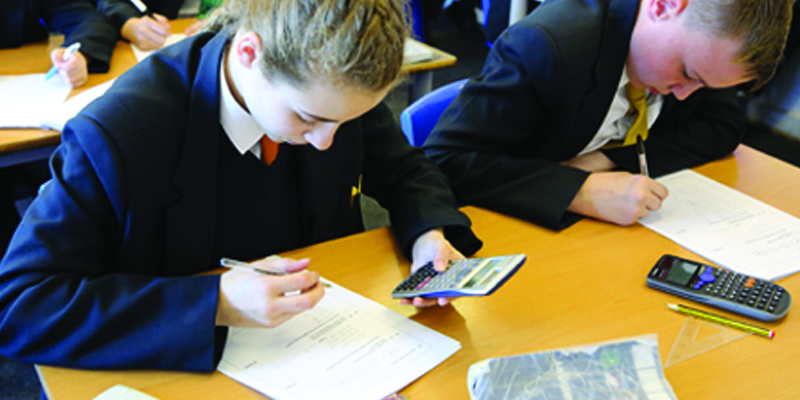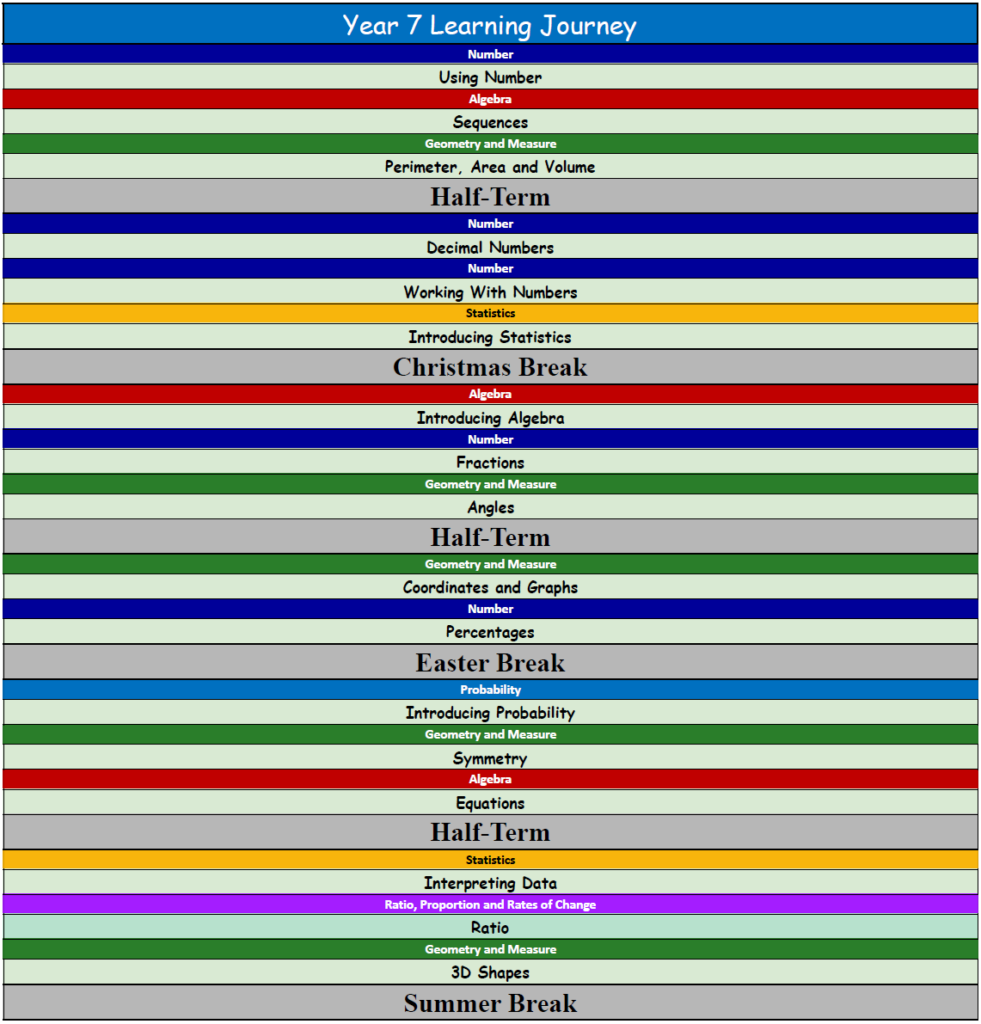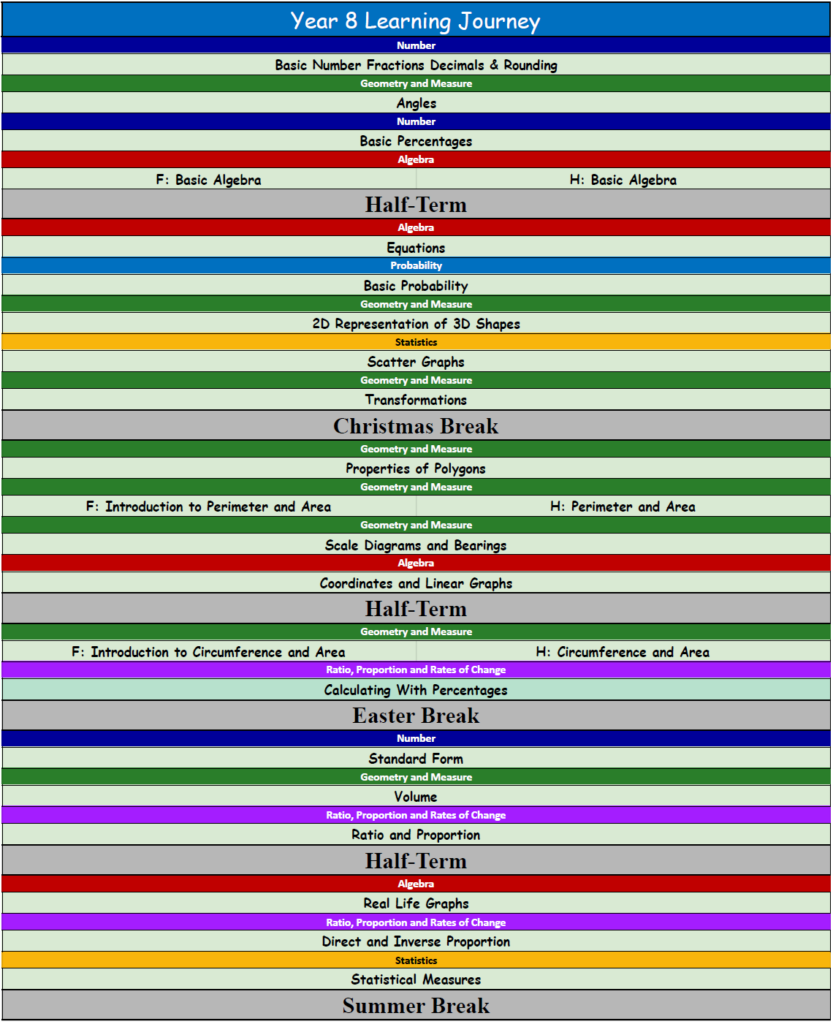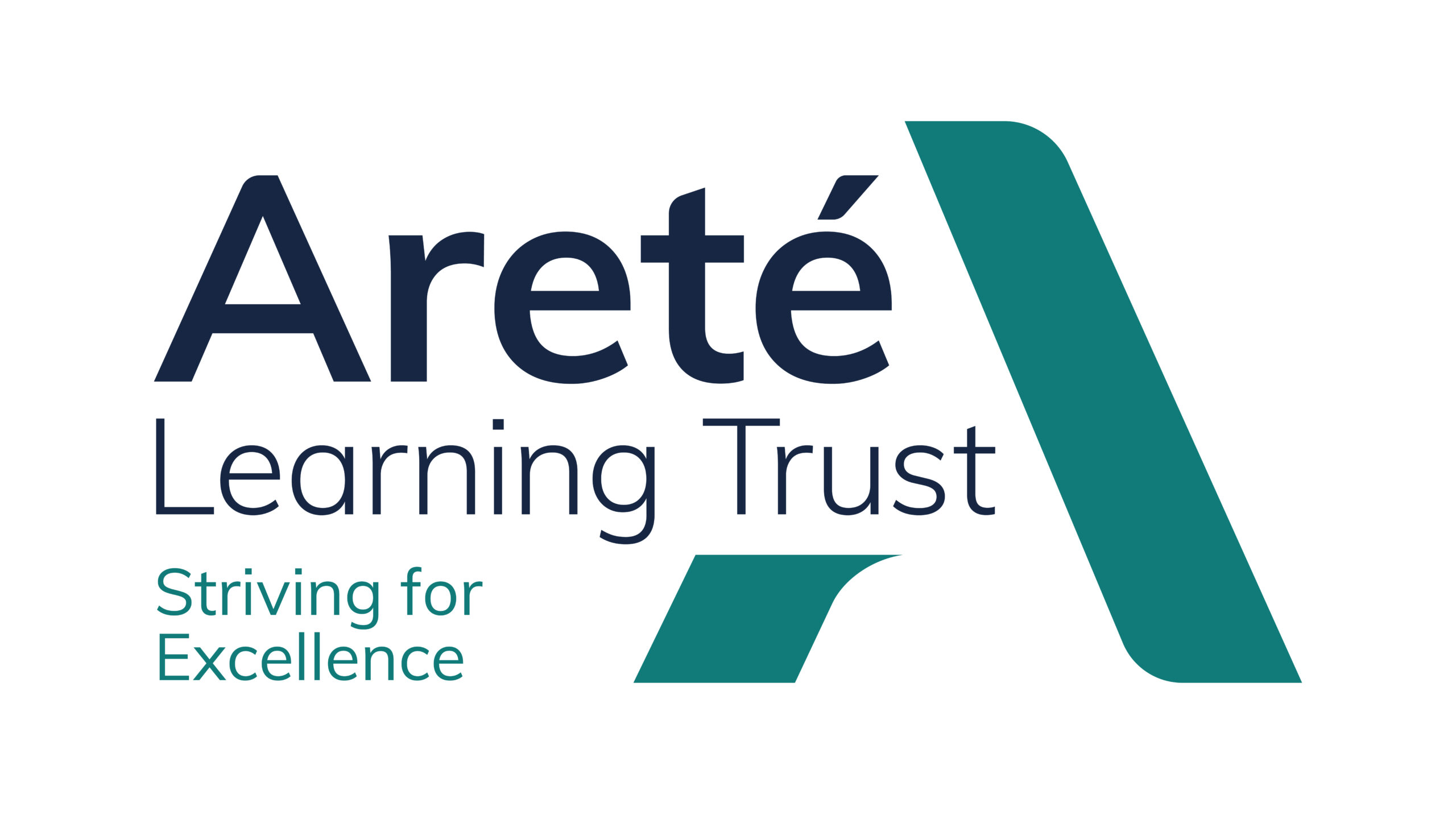
Mathematics

Mathematical thinking is important for all members of a modern society as a habit of mind for its use in the workplace, business and finance, and for personal decision-making.
Mathematics is fundamental to national prosperity in providing tools for understanding science, engineering, technology and economics. Mathematics equips students with uniquely powerful ways to describe, analyse and change the world.
Mathematics Department
Miss Sarah Bond
Numeracy Coordinator
sbond@nunthorpe-alt.uk
01642310561 EXT: 1027
Mrs Michelle Currie
Mathematics Teacher (part-time)
mcurrie@nunthorpe.co.uk
01642310561 EXT: 1027
Miss Claire Fryer
Mathematics Teacher
cfryer@nunthorpe-alt.uk
01642310561 EXT: 1027
Mr Colin Gent
Mathematics Teacher
cgent@nunthorpe-alt.uk
01642310561 EXT: 1027
Ms Susan Hardy
Mathematics Teacher
shardy@nunthorpe.co.uk
01642310561 EXT: 1027
Ms Beena Lorance
Academic Mentor (Maths)
blorance@nunthorpe-alt.uk
01642310561 EXT: 1027
Mr Hashim Mahmood
Assistant Head of Mathematics
hmahmood@nunthorpe-alt.uk
01642310561 EXT: 1027
Mr Jack Oliver
Assistant Head of Mathematics
joliver@nunthorpe.co.uk
01642310561 EXT: 1027
Mrs Vikki Robinson
Mathematics Teacher
vrobinson@nunthorpe.co.uk
01642310561 EXT: 1027
Mr Brian Stephenson
Mathematics Teacher
bstephenson@nunthorpe-alt.uk
01642310561 EXT: 1027
Students arrive at Nunthorpe Academy already having studied several areas of maths. This includes place value; the four operations; fractions, decimals and percentages; measurement, geometry (specifically the properties of shapes and position and direction and some statistics. Having scrutinised KS2 Year 6 schemes of learning from some of our larger Primary feeder schools and also having knowledge of the KS 2 SATS papers means that we have built a curriculum that builds upon and links back to previous learning.
Students at Nunthorpe Academy will be guided along a journey to prepare them for their next steps after their Secondary education; whether this be further maths at higher education or simply the ability to use maths in their everyday life – using money, reading timetables, etc.
Key Stage 3
In Year 7 and 8 all students will follow a programme of study which includes the same topics but the level at which it is delivered will be guided by the students ‘start point’; level of the student’s understanding and mathematical ability. Progress is checked by cumulative assessments throughout the year. These will check understanding of what was taught in the previous half-term, as well as prior to this. Results will be communicated to parents via email.
Year 7
In Year 7 students will revisit some of the topics they studied at Primary school. This serves to consolidate their understanding and provide a foundation which can be built upon – and extended. For example, students will revisit both multiplication and division, but they will also be introduced to the rules of BIDMAS and rounding.

Year 8
As students enter Year 8 the pattern of Year 7 is repeated. Students revisit topics, extend what they know and learn new topics. All guided by how well the students have grasped these concepts. Topics are taught in one-, two- or three-week blocks, depending on complexity.

Year 9
In Year 9, overall mathematical understanding is still checked via cumulative assessments. However, with the topics becoming increasingly complex, there is also a programme of checking a students understanding of individual topics via topic tests. These are short, 30-minute, tests, that are marked with useful feedback, with the results being emailed home to parents. By the end of year 9 the topics have now separated into higher and foundation tier GCSE topics. For example, whilst the foundation tier classes are studying an introduction to trigonometry the higher tier classes are studying the Sine and Cosine rules.
Key Stage 4
Year 10
Within Year 10 students are still studying new topics that are at an appropriate level of challenge for them, just as they were in year 7, but increasingly, higher and foundation students are studying similar, but different topics. For example, in September all year 10 students are recapping the algebra they have already studied but then the foundation tier students go on to solve quadratic equations, whilst higher tier students study the equations of a circle, in which they will be using quadratic equations.
Progress and understanding, is checked throughout the year via topic tests, as in year 9, along with students sitting, in class, a half-GCSE paper, twice during the year. Thus buy the end of year 10 students will have seen and been able to experience answering GCSE questions. The year finishes with all year 10 students sitting a GCSE maths trial exam under exam conditions
Year 11
By the end of Year 10 students within Nunthorpe Academy have studied the vast majority of topics covered within the KS4 curriculum. This leaves time in year 11 for students to revisit those topics that they now have the skills and maturity to understand better the ‘second time’ round. The topics studied in year 11 are bespoke to each class. There are three trial exams; one at the end of year 10, one during the autumn term and the final one in the spring term, after each of these a question level analysis of the question paper is undertaken and the outcome of this is used to determine the topics to be studied until the next trial exam – or of course the final external GCSE.
As with year 10, after each topic has been taught students will sit a short, 30-minute, topic test to check their understanding – again the results will be emailed to parents to keep them fully informed of their child’s progress in this most important year.











